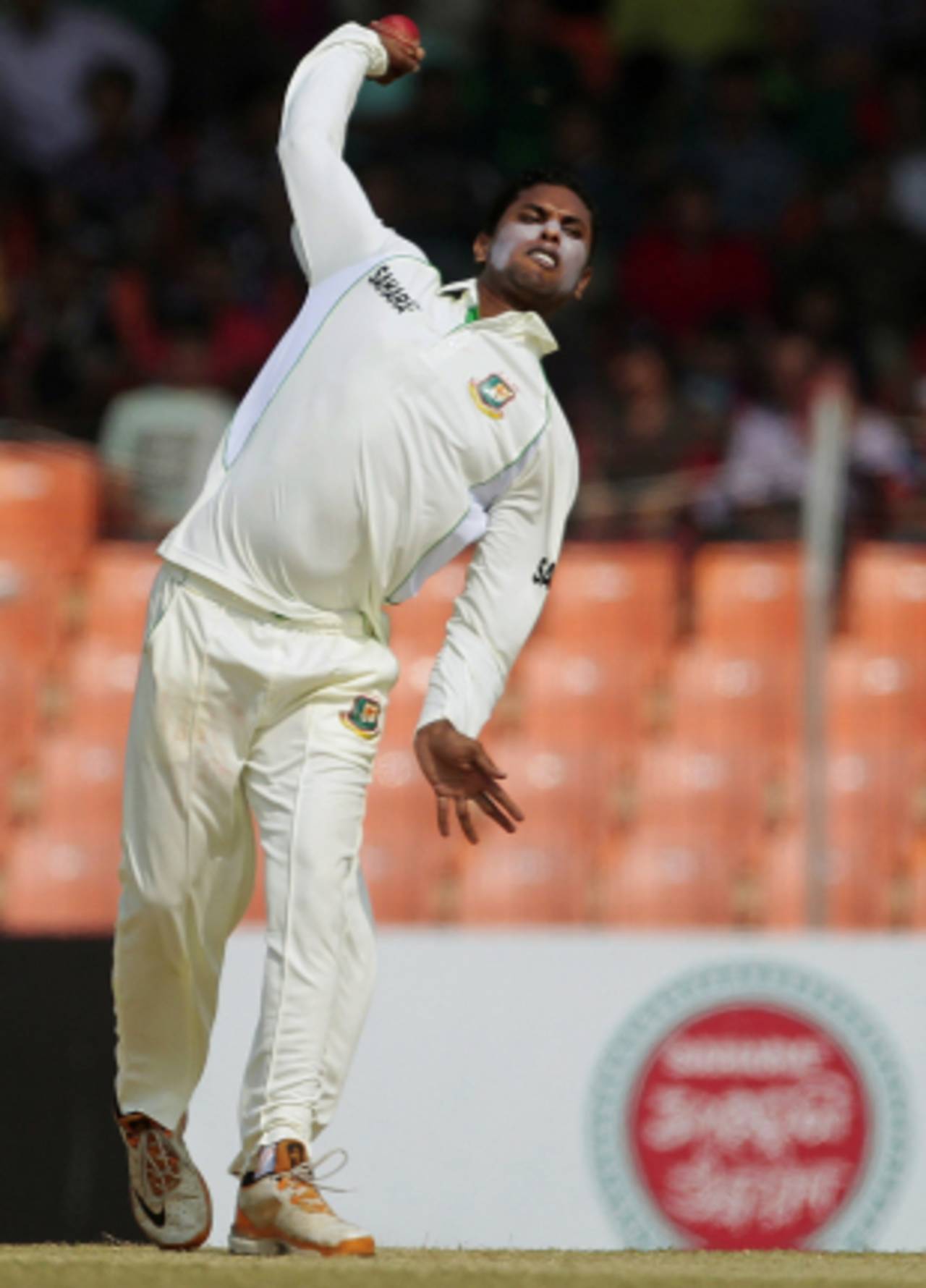Sohag Gazi has credited bowling long spells in first-class cricket as the reason for being able to bowl throughout most of the
first day of the Galle Test against Sri Lanka. His three wickets from 31 overs highlighted just how undercooked the other Bangladesh bowlers were.
"I thought that if I try only the things that I know, it will bring me wickets," Gazi told ESPNcricinfo. "I didn't want to do anything extra
"I tried to bowl wicket-to-wicket, and wait for the batsman to make a mistake. I wouldn't try too many different things, and stuck to my spot."
In only his third Test match, Gazi is perceived to be the only wicket-taking bowler in the four-man attack, despite the presence of
Shahadat Hossain and
Elias Sunny. The difference between him and the others on Friday was what he had to offer, even during barren periods in the second and third sessions.
Gazi's obvious advantage is the immediacy of his first-class experience. Since January 2010, he has bowled over 30 overs on 12 separate occasions in his 44-match career. For his National Cricket League side, Barisal Division, Gazi is often given free rein to bowl from one end all day. For the senior side too, he has had to quickly adapt to bowling the same amount of overs.
At this stage, he doesn't have any qualms about the number of overs he has to bowl, mostly because he is doing it for his country. "If my bowling helps the team, I will definitely bowl as much as I am required," Gazi said. "I shouldn't think in any other way, as it would be unbecoming of a professional spinner. If my captain wants me to bowl, I will."
The other advantage for him is that he is new to Test cricket, so bowling to a batsman of Kumar Sangakkara's class excites him.
"If you bowl to a very good player like Sangakkara, you gain valuable experience," Gazi said. "Batsmen like him wait for just one bad ball, so I tried to cut down on them."
It was quite a one-sided battle for Gazi, who eventually dismissed Sangakkara in his 28th over. But it was well after he had reached his 31st Test century, and his third against Bangladesh.
The wicket was more to do with Sangakkara's mindset of trying to get the most out of the waning bowlers. Gazi would have had Sangakkara's wicket any way possible, especially after Mohammad Ashraful dropped him at mid-off off his bowling. "Bowlers do feel bad when a catch goes down, particularly in this heat, and with very little help from the wicket," he said.
"I tried to bowl the sort of deliveries that would trouble him [Sangakkara], so I even tried some variations towards the end. But most of the time I tried to do what I am able to, and eventually it paid dividends."
Left-arm spinner Sunny is a far more experienced bowler on the domestic circuit than Gazi, and has been around the senior side ever since he took six wickets on Test debut in 2011. But due to Bangladesh's schedule, Sunny has had to miss out on the bulk of first-class matches. This season he has taken 23 wickets at an average around 34, his worst since 2006-07.
Shahadat's international career has also been in decline. It can be linked to a number of reasons, chief among which is his status as a Test-only cricketer, and the fewer number of matches that Bangladesh play in comparison to the other Test nations.
Minor injuries since then have forced him to compromise on pace, while the lack of first-class matches, has also contributed to his poor run of form. This year he has taken 31 wickets at an average under 25 but to take that confidence in to international cricket takes more than one season of consistent performance.
Mohammad Isam is ESPNcricinfo's Bangladesh correspondent
